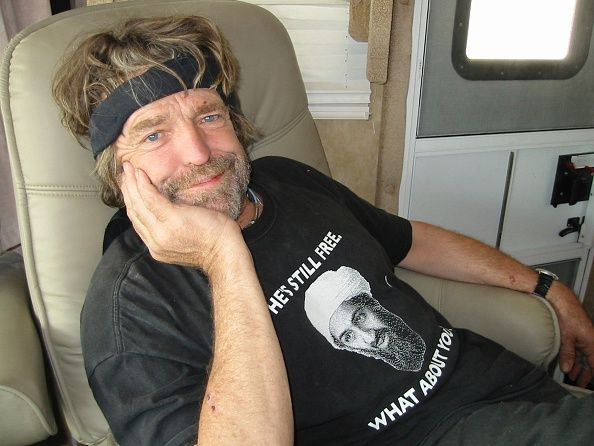John Perry Barlow's Legacy: Music, Open Internet And Press Freedom

Freedom of Press Foundation’s co-founder John Perry Barlow died in his sleep Wednesday. A man of many talents, ranging from lyricist and cyberlibertarian political activist to a retired cattle rancher, Barlow died in Wyoming at the age of 70.
Barlow, who was a digital freedom fighter and the founder of Electronic Frontier Foundation (EFF) — a digital rights group that believes in defending online liberties, published a number of essays which proposed freedom of internet devoid of government intervention. His most prominent essay published in 1996, “A Declaration of the Independence of Cyberspace,” advocated for independent internet, without government rule.
EFF executive director Cindy Cohn wrote in a statement, “It is no exaggeration to say that major parts of the Internet we all know and love today exist and thrive because of Barlow’s vision and leadership. He always saw the Internet as a fundamental place of freedom, where voices long silenced can find an audience and people can connect with others regardless of physical distance.”
Barlow was a strong proponent of the digital age and a visionary who saw the tremendous potential of technology on mankind. He didn’t just blindly believe the use of technology can solve humanity's problems but also thought it can certainly steer us towards a better future.
According to Cohn, Barlow was capable of seeing the good and bad attributes of the digital age, but made a conscious decision to work on the former rather than dwell on the latter.
Cohn said Barlow once stated, “New technology could create and empower evil as much as it could create and empower good. … I knew it’s also true that a good way to invent the future is to predict it. So I predicted Utopia, hoping to give Liberty a running start before the laws of Moore and Metcalfe delivered up what Ed Snowden now correctly calls 'turn-key totalitarianism.”
In addition to being an internet pioneer, he was also a lyricist who wrote more than 30 songs for the “Grateful Dead” in 1971, after meeting and forming a close bond with team member Bob Weir when he was 15 years old. They collaborated on "Cassidy," "Mexicali Blues," Black-Throated Wind" and "Looks Like Rain," among a dozen other songs.
He also started the Freedom of Press Foundation — a non-profit organization to support free speech and freedom of press. He was also part of one of the board meeting with whistleblower Edward Snowden to investigate reporter Glenn Greenwald.
Cohn believes Barlow, who left a lasting legacy, will be remembered for his work on making internet a space free from government rule.
“Barlow’s lasting legacy is that he devoted his life to making the Internet into a world that all may enter without privilege or prejudice accorded by race, economic power, military force, or station of birth . . . a world where anyone, anywhere may express his or her beliefs, no matter how singular, without fear of being coerced into silence or conformity.”
© Copyright IBTimes 2024. All rights reserved.





















